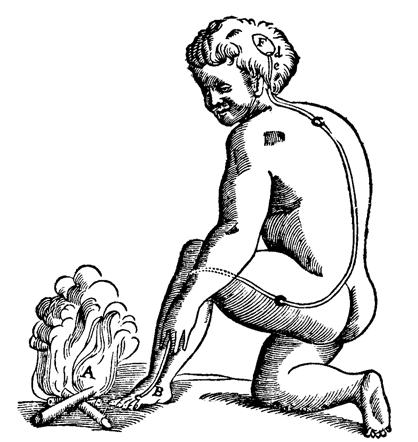Cambridge researchers have identified gene sequences that make some people feel more pain.
Molecular biologist Geoff Woods, together with colleagues internationally,  made the discovery when he compared the pain scores reported by 578 arthritis patients with the severity of their disease as revealed as revealed by X-rays of their joints.
made the discovery when he compared the pain scores reported by 578 arthritis patients with the severity of their disease as revealed as revealed by X-rays of their joints.
Some patients, the team found, were reporting more pain than others, despite having arthritis of similar severity.
To find out why the researchers then matched up the patients' pain scores with the DNA sequences they carried for a gene called SCN9A, which is known to be active in pain-conveying nerve fibres.
This led the team to identify two variants of the gene in the patients, a rarer "A" form and a more common "G" form. On average, patients carrying the A variant tended to report more severe pain than patients carrying the G form of the gene, despite having arthritis of similar severity.
To confirm the findings, the researchers then repeated the study on 179 patients with lumbar back pain, with similar results, and also subjected a group of female volunteers to a range of painful stimuli, again demonstrating that individuals carrying the A form of the gene were more pain-sensitive.
To find out why, the researchers expressed the SCN9A gene in cultured HEK293 cells, which have nerve-like properties. The gene encodes part of an ion channel, which sits on the membrane and allows sodium to enter the cell, altering its electrical activity.
In these cells, the team found, the A and G forms of the gene had subtly different electrical properties, sufficient to explain the increased sensitivity of carriers of the A form to painful stimuli.
This shows, say the researchers in their paper in PNAS, that human pain perception is under genetic influence; understanding how to modify the functions of these pain-specific genes will inevitably lead to improved analgesics and the identification of individuals with more specific pain-killing requirements.










Comments
Add a comment